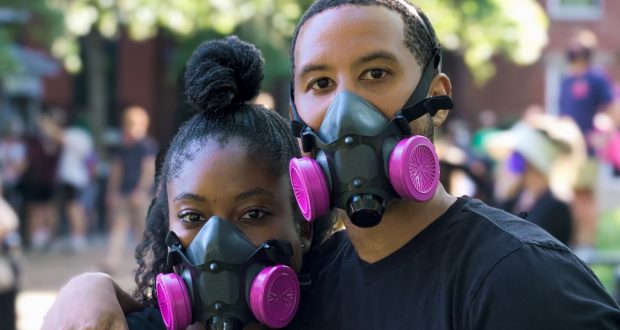GoFundMe pages, idled workers and “good-bye and thank you” signs popping up on one long-standing storefront after another. America’s Main Street businesses are on the ropes and many of our moms and pops are facing early retirement. Sadly, an overwhelming eight in 10 small business owners say our nation’s leaders don’t understand their needs–and favor big business anyway–during this time of crisis, according to a new survey of 1,200 entrepreneurs from Small Business for America’s Future.
The COVID-19 pandemic and the protests around the murder of George Floyd and so many other black Americans have exposed and highlighted the structural racism that exists in our healthcare and economic systems. For small business owners—and for all of us who rely on them for jobs and essential and enjoyable services—the aftershocks could be profound. Shutters and closures raise the specter of Main Streets that more resemble the first years of the Great Recession, or the aftermath of an extreme weather event, than a rebounding recovery.
Small businesses–particularly small business owners of color–are suffering and the Trump Administration’s confusing, uneven and lackluster response has left many entrepreneurs feeling poorly understood and left behind. There has been little progress on advancing a comprehensive recovery plan that will help our nation’s primary job creators survive and rebuild over the long term.
This is an unacceptable state of affairs. We cannot let our small businesses bear the economic brunt of the turmoil in our country. It was small businesses—not giant corporations—that led the country out of the Great Recession. They created nearly two-thirds of new jobs following the recession, according to the Small Business Administration. With a long-term recovery plan dedicated to helping small businesses, they can lead the way out of the COVID-19 recession, too.
But we have a lot of work to do. Small business owners were already feeling betrayed by the 2017 Trump tax cuts, citing windfalls for corporations and lip service for them. The feeling only intensified when, under the administration’s Paycheck Protection Program (PPP) implementation plan, it became known that chains like Ruth’s Chris Steak House and Shake Shack had an easier time getting a PPP loan than your neighborhood bistro or barber shop.
For entrepreneurs of color, emergency aid has fallen far short. A recent poll of Black and Latino business owners from Color of Change and UnidosUS found just 12% of the owners who applied for aid from the Small Business Administration — most seeking a PPP loan — reported receiving what they had asked for and nearly half say they will be permanently out of business by the end of the year.
The result, unfortunately, is that small businesses have lost faith that government leaders care about them. We can’t go on like this. Our leaders must commit to helping small business owners recover and rebuild over the long-term. To help the small business community in this effort, a coalition of business owners and leaders have come together to launch Small Business for America’s Future.
We need a strong small business voice in Washington committed to ensuring policymakers prioritize Main Street by advancing policies that work for small businesses and their employees. If we don’t empower our job creators, our economic recovery will be much slower and more painful.
Our survey shows the need for a long-term recovery plan for small businesses is undeniable:
? Nearly a quarter (23%) of small business owners have considered closing their business permanently and 12% are facing the possibility of having to declare bankruptcy because of COVID-19
? 53% have new debt related to COVID-19. Of those, one-third have $50,000 or more in new debt.
? Three in 10 small businesses will dip into their personal savings to finance reopening while 2 in 10 will use credit cards to do so
Small business owners are in this situation for doing their part to prevent the spread of the virus. Now, it’s time for policymakers to do their part to make sure small businesses can rebuild.
In our survey, small business owners identified three primary areas of concern that need to be addressed in the recovery: lowering healthcare costs, creating common-sense tax policies that put small businesses on a level playing field with big businesses, and ensuring a just and equitable recovery and economy.
The virus has not gone away and the road to recovery will be steep. Small business owners will have to struggle through lower sales volume and depressed consumer demand as people cautiously test the waters. Only 38% of small businesses expect revenue to increase over the next 12 months, according to a CNBC survey.
We need our leaders to dedicate themselves to creating policies that give Main Street a chance to get off the ropes. And we’ll be in their corner fighting for small business and America’s future.
 Westside Story Newspaper – Online The News of The Empire – Sharing the Quest for Excellence
Westside Story Newspaper – Online The News of The Empire – Sharing the Quest for Excellence




